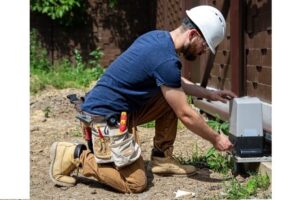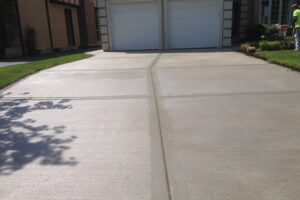New York City and its beach areas like Long Island have faced criticism overtheirhard-presseddrainage network and incompetence in battling heavy downpours. More thana fifth of the city’s infrastructure faces manhole overflows, which makes it challenging to maintain hygiene standards.
Many homes and apartments in Long Island consistently face issues like sewer backup due to dated sewerage systems and blocked pipes. Houses in Long Island are vulnerable to sewerage problems.A poorly functioning home drainage system can further make the situation worse.
Common drainage problems like a clogged drain, reduced water flow, foul odor, and sewer backup can cause a great deal of inconvenience and may completely halt your everyday activities. More so, a persistent drainage issue can cause water damage and invite a variety of diseases and allergies.

The good news is that you can avoid all this hassle simply by keeping your drainage system healthy. Here are some simple tips:
Table of Contents
1. Never Let a Drainage ProblemLinger for Too Long
We all procrastinate over minor plumbing or drainage issues, rationalizing that they’re not pressing matters. You may delay clearing a clogged drain even if it’s slow but still draining enough water. We only perceive a plumbing issue as urgent when it starts interfering with our daily routines.
However, the truth is that delaying drainage and plumbing issues can lead to costly repairs. In areas like Long Island, where the drainage network is already compromised, it’s imperative to fix a plumbing issue as soon as you notice it. However, instead of experimenting with an inexperienced plumber, hire the best Long Island plumbing company for the job.
Some credible plumbing services like Varsity Home Service provide 24/7 emergency response.Their plumbing experts will handle the plumbing emergency and also look at your entire plumbing and drainage system to identify the root cause of the problem. This will ensure that the drainage or plumbing issueis fixed once and for all.
2. Pay Close AttentiontoAny Signs of a Faulty Drainage System
We can’t emphasize enough on keeping a close eye on even the slightestdrainage issues. This is because these seemingly minor problems keep building up like lava and erupt at the most inconvenient time. Pay close attention to the following signs:
Water Takes a Long Time to Drain
If the water drainsare noticeably slower in sinks, toilets, washbasins, bathroom drains, and bathtubs, it’s an obvious sign of clogged pipes. Blockage can cause cracks in the drainage pipes over time due to the extra water pressure. This allows water to seep into the foundation and walls of your house and causes serious water damage.
A Strange Sound Coming from the Drains
Air trapped inside the pipes due to blockage creates a weird gurgling sound. If you notice such sound coming from the drain, it’s definitely a problem with your drainage system.
It Stinks!
A foul smell coming from the drains that are either consistent or come when you start using water in your bathroom or kitchen. It is a sign that there’s something wrong with your drainage system. This could be due to a clogged pipe or a U-shaped joint holding sewage water.
Water Backup
Sewer backups are nothing short of a nightmare. Clogged pipes or faulty drainage/sewerage systems are the most obvious culprits. If all your drains are backing up, check your nearest street sewerage pipes to find the cause.
Insects and Pest Infection
A cockroach making a surprise appearance at night every once in a while. But if they wage a full-scale invasion in your home, you can likely trace their nearest war camp in a clogged drain or stagnant sewage water.
3. Place Drain Guards Over Open Drains
Sometimes, the simplest answer is usually the right one, and the same applies to your drainage system. Drains usually get clogged by food remnants and random garbage that finds its way down the drain. Before you end up clogging your drains, the simplest way to keep the drainage system working is to cover open drains with a drain guard.
Drain guards have a mesh structure to filter any garbage from the water and prevent it from entering the drainage pipes.
Even if your fitted drain guard has bigger holes, you can place a removable/ disposable drain guard on top of it to further filter the debris. Keep checking drain guards each time you wash or sweep the area and throw away any debris accumulated over it.
4. Regularly Flush Hot Water Down the Drains
Kitchen drains are prone to gunk buildup around pipes and food particles accumulating inside twisted junctions over time, eventually blocking the drainage pipe. However, hot water can easily melt away the dirt and dissolve food particles. Regularly flush boiling water down the drains to melt any grease and gunk right away and clear out any food remnants in the drainage pipes. Make sure the water is in enough quantity to first melt and then flush down the dirt.
5. Use Drain Cleaners or Openers for Minor Blockages
Another effective way to keep your drainage system healthy is to use a commercial, eco-friendly drain opener. Simply pour the recommended quantity inside the drain and leave it for half an hour. After that, flush the drains with clean water.
If you want to use a chemical-free, environment-friendly solution, you can prepare your drain opener at home using vinegar and baking soda. Prepare the mixture with hot water and use it in the same way as commercial drain openers.
6. Never Throw Items into the Toilet or Drains
The most common cause of a clogged toilet and sewage backup is garbage buildup in the drainage pipes. Insoluble items like diapers, wipes, plastic bottles, hair, pet dander, and small containers may easily flush down the toilet. However, they either block the drainage pipe or keep accumulating in the deeper plumbing system. This can ultimately wreak havoc on both your plumbing/drainage system and your home’s structural integrity, let alone the list of costly repairs waiting for you.
If the garbage builds up in lower drainage pipes, it can even lead to cracks and water seepage. Sometimes, these cracks allow sewage water to get mixed up with clean drinking water and cause contamination.
A plumber may have to excavate the floor on a massive scale to find out the problematic area and fix the drainage issue. If you want to avoid this fuss, refrain from throwing any insoluble items into the toilet seat and open drains. Throw even the tiniest pieces of paper or a makeup wipe into a trash bin.
Wrapping Up
A well-maintained and healthy drainage system multiplies your home’s life and stays reliable for years. The tips mentioned above will help you keep your drainage system free from clogs, cracks, and backups. However, if you notice any issues with your drainage system and simple DIY solutions don’t seem to work, don’t hesitate to call your local plumbing service to deal with the issue immediately.




